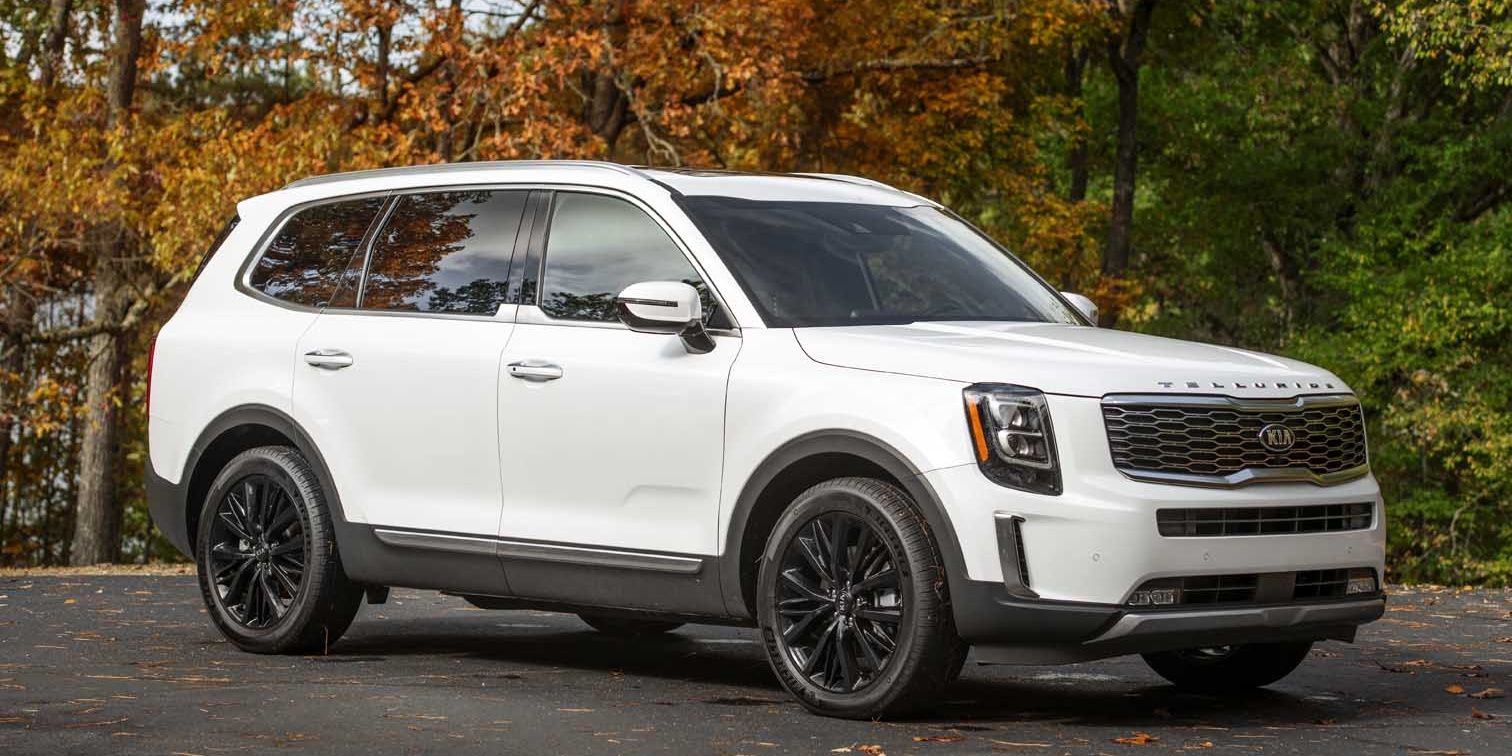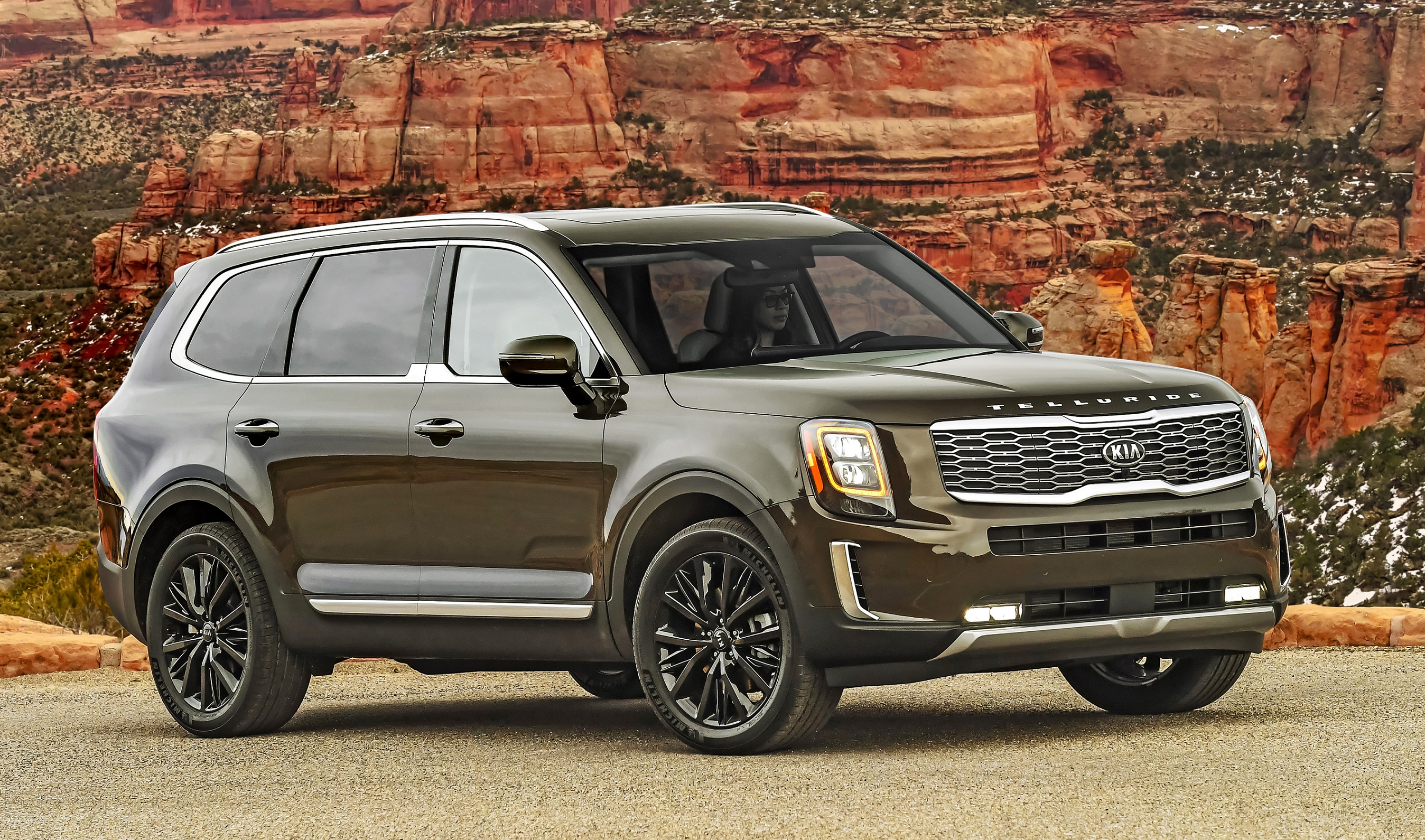Best mid size suv – Best mid-size SUVs offer a compelling blend of practicality, performance, and style, catering to diverse lifestyles. This guide delves into the criteria defining the “best” SUV for various needs, from family adventures to urban commutes. We’ll examine top contenders, comparing features, performance, safety, and technology to help you make an informed decision. Understanding the nuances of fuel efficiency, running costs, and innovative technology will empower you to choose the perfect vehicle for your individual requirements.
We’ll explore how marketing influences perceptions and dissect the unique selling propositions of leading models. Our comprehensive analysis considers everything from acceleration and braking to interior comfort and advanced safety features, ensuring a holistic view of the mid-size SUV market. By the end, you’ll have a clear understanding of which vehicle best suits your lifestyle and budget.
Defining “Best” in Mid-Size SUVs
The term “best” when applied to mid-size SUVs is inherently subjective, varying greatly depending on individual needs and priorities. This analysis explores the multifaceted criteria used to determine the ideal vehicle for different consumer profiles, highlighting the influence of marketing on consumer perception.
Criteria for Defining “Best”
Defining the “best” mid-size SUV requires considering various factors that hold different levels of importance for different consumer groups. Families prioritize spaciousness, safety features, and fuel efficiency. Adventurers might focus on off-road capabilities, robust engine performance, and all-wheel drive. City dwellers, on the other hand, may prioritize fuel efficiency, maneuverability, and advanced driver-assistance systems.
Essential Features and Their Importance
Essential features vary significantly in importance depending on individual needs. For families, safety ratings (IIHS, NHTSA), ample cargo space, and comfortable seating are paramount. Adventurers value all-wheel drive, ground clearance, and towing capacity. City dwellers might prioritize features like parking assistance, fuel efficiency, and advanced safety features for urban driving.
- Safety: High safety ratings from IIHS and NHTSA are crucial for all consumers.
- Fuel Efficiency: Important for all, but especially crucial for city dwellers and budget-conscious buyers.
- Cargo Space: Essential for families and those who frequently haul cargo.
- All-Wheel Drive (AWD): Beneficial for adventurers and those living in areas with inclement weather.
- Infotainment System: A desirable feature for all, impacting daily usability and entertainment.
Marketing’s Influence on Consumer Perception, Best mid size suv
Marketing significantly shapes consumer perceptions of “best.” Clever advertising campaigns often highlight specific features, associating them with desirable lifestyles or values. For example, a rugged SUV might be marketed towards adventurers, emphasizing its off-road capabilities, while a luxury SUV might be positioned as a status symbol, focusing on its premium features and sophisticated design. This selective emphasis can influence consumers to prioritize certain features over others, even if they are not necessarily the most important for their individual needs.
Top Contenders: Mid-Size SUV Models
Five leading mid-size SUVs currently available demonstrate the diversity within this segment. The following table compares key features, while subsequent sections delve deeper into individual strengths.
Mid-Size SUV Model Comparison
| Model | Price (MSRP)1 | Fuel Efficiency (City/Highway MPG)2 | Safety Rating (IIHS/NHTSA)3 | Cargo Space (cu ft)4 |
|---|---|---|---|---|
| Honda CR-V | $28,000 – $37,000 | 28/34 | Top Safety Pick+ / 5 stars | 39-76 |
| Toyota RAV4 | $27,000 – $38,000 | 28/35 | Top Safety Pick+ / 5 stars | 37.6-69.8 |
| Subaru Forester | $27,000 – $36,000 | 26/33 | Top Safety Pick+ / 5 stars | 74.2 |
| Mazda CX-5 | $27,000 – $37,000 | 24/31 | Top Safety Pick+ / 5 stars | 30.9-59.6 |
| Ford Escape | $27,000 – $37,000 | 26/31 | Top Safety Pick / 5 stars | 37.5-65.4 |
1Manufacturer’s Suggested Retail Price (MSRP) varies by trim level and options. 2EPA estimated fuel economy. 3Ratings may vary by year and trim level. 4Cargo space varies depending on configuration.
Unique Selling Propositions
Each model offers unique selling points. The Honda CR-V emphasizes reliability and fuel efficiency. The Toyota RAV4 boasts a strong reputation for dependability and resale value. The Subaru Forester stands out with its standard all-wheel drive and rugged capabilities. The Mazda CX-5 prioritizes sporty handling and stylish design.
The Ford Escape offers a blend of features and competitive pricing.
Performance and Handling
Performance characteristics and engine options vary significantly among these models. This section details acceleration, braking, handling, and the impact of drivetrain systems.
Performance Characteristics and Engine Options
The Honda CR-V and Toyota RAV4 generally offer smooth acceleration and comfortable handling, prioritizing fuel efficiency over raw power. The Subaru Forester, with its standard AWD, provides enhanced traction and handling, particularly in challenging conditions. The Mazda CX-5 delivers a more engaging driving experience, with a focus on sporty handling. The Ford Escape offers a range of engine options, catering to diverse performance preferences.
Notice ssundee for recommendations and other broad suggestions.
Drivetrain Systems: FWD vs. AWD
Front-wheel drive (FWD) systems generally offer better fuel economy, while all-wheel drive (AWD) systems enhance traction, stability, and safety, especially in adverse weather conditions. AWD systems typically come at the cost of slightly reduced fuel efficiency.
Safety Features and Ratings
Advanced safety features are increasingly common in mid-size SUVs. This section compares safety ratings and highlights the contribution of these features to overall safety and driver confidence.
Advanced Safety Features
Many mid-size SUVs now include features like adaptive cruise control, lane departure warning, automatic emergency braking, blind-spot monitoring, and rear cross-traffic alert. These systems significantly enhance safety by assisting the driver in avoiding accidents.
Safety Ratings Comparison
All five models generally receive high safety ratings from both the IIHS and NHTSA. Specific ratings may vary slightly depending on the year and trim level. However, all models are designed with a strong emphasis on occupant protection.
Contribution to Safety and Driver Confidence
The combination of advanced safety features and high safety ratings contributes significantly to overall safety and driver confidence. These features help mitigate risks, reduce the severity of accidents, and provide drivers with greater peace of mind.
Interior Design and Comfort: Best Mid Size Suv
Interior design, materials, seating comfort, and passenger space are crucial considerations for potential buyers. This section compares these aspects across the top five models.
Interior Design and Materials
The interior design and materials used vary among the models. Some models prioritize a more upscale feel with premium materials, while others opt for a more functional and practical approach. Specific details will vary depending on the trim level.
Seating Comfort and Passenger Space
Seating comfort and passenger space are generally comparable across the five models, with minor variations depending on the configuration and trim level. Most offer comfortable seating for five passengers and sufficient legroom and headroom in both the front and rear seats.
Infotainment Systems and Technology Features
All five models offer modern infotainment systems with touchscreen interfaces, smartphone integration (Apple CarPlay and Android Auto), and various connectivity options. Some models offer advanced features like premium sound systems, navigation, and larger touchscreen displays.
Fuel Efficiency and Running Costs
Fuel efficiency and long-term running costs are important factors to consider when purchasing a mid-size SUV. This section compares fuel economy and discusses maintenance and repair costs.
Fuel Economy Comparison
Fuel economy varies depending on the engine, drivetrain, and driving habits. Generally, FWD models tend to be more fuel-efficient than AWD models. Specific MPG figures are provided in the comparison table above.
Long-Term Running Costs
Long-term running costs, including maintenance and repairs, can vary depending on the make and model, as well as individual driving habits and maintenance schedules. Generally, Japanese brands (Honda, Toyota, Subaru) are often perceived as having lower long-term maintenance costs compared to American brands (Ford).
Tips for Maximizing Fuel Efficiency
To maximize fuel efficiency in a mid-size SUV, drivers can practice efficient driving techniques such as maintaining a consistent speed, avoiding aggressive acceleration and braking, and keeping tires properly inflated.
Technology and Infotainment
Technology and infotainment features are increasingly important to consumers. This section details the technology features in the top five models and compares their user-friendliness and functionality.
Technology Features Comparison

All five models offer a range of driver-assistance systems and infotainment features. Specific features and their availability vary depending on the trim level. Most offer smartphone integration, advanced safety features, and various connectivity options.
User-Friendliness and Functionality
The user-friendliness and functionality of infotainment systems vary depending on the manufacturer’s design and software. Some systems are more intuitive and user-friendly than others. Ease of use is a subjective matter, and personal preferences will influence user satisfaction.
Innovative Technology Features
- Heads-up displays
- Digital instrument clusters
- Advanced driver-assistance systems (ADAS) like lane centering and adaptive cruise control
- Wireless smartphone charging
- Augmented reality navigation
Visual Representation: Mid-Size SUV Features
Exterior styling and interior design contribute significantly to the overall appeal of a mid-size SUV. This section describes the visual aspects of the top five models.
Exterior Styling and Design
The Honda CR-V presents a clean, modern design. The Toyota RAV4 offers a more rugged and adventurous aesthetic. The Subaru Forester maintains a boxy, practical design. The Mazda CX-5 showcases a more sophisticated and sporty appearance. The Ford Escape presents a blend of modern and rugged design cues.
Interior Design and Layout
Interior designs vary in terms of material choices and overall layout. The Honda CR-V and Toyota RAV4 generally favor a more functional and practical approach. The Mazda CX-5 tends towards a more premium and sophisticated feel. The Subaru Forester offers a spacious and versatile interior. The Ford Escape presents a modern and comfortable cabin with a focus on practicality.
Choosing the best mid-size SUV is a significant decision, demanding careful consideration of your specific needs and preferences. This guide has provided a framework for evaluating top contenders, focusing on performance, safety, technology, and overall value. By weighing the advantages and disadvantages of each model, considering factors like fuel efficiency and long-term running costs, and prioritizing features relevant to your lifestyle, you can confidently select the perfect mid-size SUV to meet your requirements and enhance your driving experience.
Quick FAQs
What is the average lifespan of a mid-size SUV?
With proper maintenance, a mid-size SUV can last 15-20 years or more, depending on the make and model.
How much does insurance typically cost for a mid-size SUV?
Insurance costs vary significantly based on factors like location, driving history, and the specific vehicle. It’s best to obtain quotes from multiple insurers.
What are the common maintenance needs for mid-size SUVs?
Regular maintenance includes oil changes, tire rotations, brake inspections, and fluid checks, following the manufacturer’s recommended schedule.
What are the resale values like for mid-size SUVs?
Resale value depends on the model’s popularity, condition, and mileage. Some models retain their value better than others.



